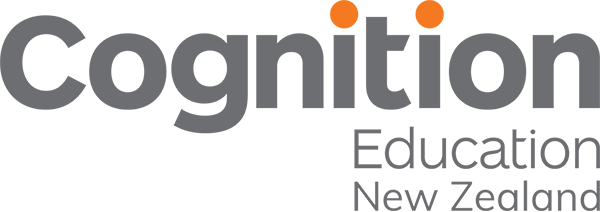PLD for Secondary Schools
Secondary schools are often divided into semi-autonomous kingdoms in accordance with the seven learning areas of the New Zealand Curriculum. This can mean that choosing and accessing PLD that meets the schools overall needs can be challenging for school leaders.
Additionally, marrying the need to change with the reality of implementing and embedding this change in classroom activity takes time, patience and empathy.
As Secondary Schools wrestle with the identified need to develop learner agency, provide a relevant curriculum, ensure that learning is inclusive and protect the wellbeing of all, they need to establish a relationship with providers that brings expertise into their kura but is also respectful of who they are and works with them on their aspirational goals.
Schools need to know that the PLD they engage with and the providers they form partnerships with will ultimately empower staff to improve the outcomes of all learners.
Cognition Education is an experienced PLD provider, with strong expertise in the National PLD Priorities: Cultural Capability, Local Curriculum Design, Assessment for Learning and Digital Fluency. Using The Collaborative Impact Approach to discover, design, deliver and evaluate we are able to support teachers and kaiako in Secondary schools to provide relevant and meaningful responsive learning experiences for all ākonga and students.
ENQUIRE ABOUT
Funding support
PLD in Secondary Schools across New Zealand
BUILDING CULTURAL COMPETENCY
In order to address the inequities in the schooling achievement of Māori, and other marginalised groups in our education system, we need to continue to grow the cultural competence of our teachers.
These ongoing inequities in our secondary schools have been illustrated in the results of the He Awa Ara Rau: A Journey of Many Paths project which found 20 percent of rangatahi (young) Māori left school with no qualifications, and only 14 per cent completed a degree.
When teachers and kaiako are culturally capable and responsive this means they are aware of practices that perpetuate discrimination, racism and inequity. They can analyse and adjust practices to communicate and teach in ways that develop critical consciousness and sustain and value cultural identity. Being culturally capable is also about understanding, valuing and amplifying different world views, perspectives, experiences, and measures of success. Teachers and kaiako who work in this way are more likely to see improved outcomes (on a range of metrics) for their Māori students than those who don’t work in this way and who hold deficit expectations for Māori and other marginalised students.
The question we all seek the answer to is ‘how best to do this?’. That doesn’t just mean looking at what theory suggests should work – but rather it means considering what we know actually works and has a measurable impact not only on teachers’ sense of their own cultural capability, but also on the outcomes for Māori and other marginalised students?
What Cognition Education’s relationships-based learning team have learned from our work with over 175 schools in Aotearoa/NZ is that effective relationships are at the heart of learning – for both students and teachers. When schools seek out student and whanau ‘voice’ about what works for them in their schooling, and then commit to acting on the learning from that voice, this helps to build effective partnerships between teachers and students.
Cognition’s Relationships First programme supports educators to build effective relationships with students, with a specific emphasis on marginalised students. We help ensure that your teaching and learning culture is capable of achieving equitable and excellent outcomes for Māori. It is based on over a decade’s worth of research into what works best for indigenous and minoritized students, looking at the factors necessary to transform their schooling experience from one of failure, to one of success.
We’d welcome the opportunity to work with you to build the cultural capability of your staff and make a difference for your students.
LOCAL CURRICULUM DESIGN (INTEGRATED CURRICULUM)
Secondary schools across the country are becoming increasingly aware of the need to review their programmes of learning so as to ensure that they are providing relevant and engaging contexts for learning. For many this leads to a desire to explore authentic contexts for learning that link their school to the wider community and, with this, the almost inevitable next step from here is to then look at cross curricular or connected programmes of learning. At the same time there is an increasing desire to enhance learner agency and work towards supporting the intrinsic motivation of their students.
Many see both of these areas coming together when they look to strengthen and develop their schools local curriculum.
Some like Howick College are several years down this path and now have an innovative stream that takes a growing group of learners from Year 9 into the senior school via an integrated approach to the curriculum. Others like Tangaroa College have more recently pursued the adoption of a junior programme that deliberately uses authentic contexts as the focus of learning across core Learning Areas. Meanwhile Birkenhead College has embraced the new Digital Technologies curriculum as a way of exploring cross curricular links and connections.
The development of transferable skills and an awareness of metacognitive processes has been an increasing feature of the work done at Howick College as students develop their understanding of key transferable skills alongside their awareness of how they learn.
While at Tangaora College the ability for learners to place their understanding of fake news around Covid -19 alongside scientific fact has enhanced, not only, their academic learning but also the ability of many to make sense of what is happening in their world right now and differentiate fact from opinion. As one student commented it allowed them to see the issue from a variety of perspectives.
There is one aspect that links all of the work these schools are doing and that is that it becomes quickly apparent that in any integrated programme the planning process and documentation, the processes and systems that are vital to any initiatives success need to be rigorous. To be effective they need to be collaboratively developed, shared and owned .There needs to be a common language for learning that is used by all participants in the programme as well as a shared understanding of the process of learning model used.
This is where we can help.
If your school is considering any form of cross curricula, integrated or contextualised learning to meet local curriculum needs then we at Cognition Education can assist in developing, with you, the systems and processes that will be vital if this development is to be successfully planned, implemented and managed in a way that ensures sustainability and growth.
DIGITAL FLUENCY (INCREASING TEACHERS' DIGITAL CAPABILITIES)
The need to develop teachers’ digital capabilities, is currently in the spotlight for many schools. Never before have we needed teachers to be so successful in the online space with their students as we strive to find new and engaging ways to relate to students and deliver learning opportunities as we explore the hybrid opportunities technology enables.
Many secondary schools, like Botany Downs Secondary College, already had an established online environment in place for their students and teachers and were successful in connecting with their students in a variety of ways even before the first (New Zealand wide) lockdown happened. Many secondary schools, however, were not in this position when the lockdown happened and in some cases students and teachers were left confused and frustrated.
Moving forward many schools have learnt valuable lessons and retained the digital systems they developed during these trying times and are now prioritising building the digital capabilities of their staff.
Learning management systems (Google Apps for Education and Microsoft 365) are far more empowering for teachers and students when there is a clear understanding of what to use and when to use it. Training in this area can be overwhelming for teachers who may not have had a lot of prior exposure or experience with using them.
This is where we, at Cognition, can help. Establishing an effective school wide eLlearning pedagogical approach is the basis for making online learning work for all. At Cognition we work with many schools who are enabling teachers, students and whanau to work with digital tools. For many secondary schools the implementation of the new Digital Technology Curriculum has been a way to upskill both staff and students in their confidence and competence in the digital world, with an increasing number of learning areas taking on coding, app building and video making for the first time and reporting increased engagement and success of learning outcomes as a result.
Most secondary settings have either implemented or are looking at ways to incorporate BYOD, (bring your own device), into the daily life of students and teachers. With the inclusion of more device use and online tools it is important that the school has all of their ‘ducks in a row’ when it comes to policies and procedures in relation to digital citizenship. Often these policies are not needed until things turn ugly and then they are essential. Cognition has helped many secondary schools complete a three year Digital Citizenship Plan, which includes a review of all areas related to policy, deployment of infrastructure and devices, as well as curriculum planning. With this plan in place the school can be sure they are ticking the boxes as well as preparing their students for the online world, both within the school gates and beyond.
ASSESSMENT FOR LEARNING (CURRICULUM PROGRESS TOOLS IN THE SECONDARY CONTEXT)
Secondary schools are increasingly using a variety of approaches to assessment to inform learning decisions. Cognition Education is working with schools in utilizing The Curriculum Progress Tools for this purpose. These tools are a unique blend of progressions in learning, developing teacher formative assessment capability that support the use of rich and authentic learning opportunities.
The Curriculum Progress Tools are made up of two tools: The Learning Progression Framework (LPF) and the Progress and Consistency Tools (PaCT). The LPFs provide an overview of the typical pathway students take from school entry to the end of Year 10 in reading, writing and mathematics. Each framework gives seven or eight signposts which are illustrated with annotated examples of student work and thinking. PaCT is a tool that helps teachers to record their judgements and track progress.
PaCT collects together the teachers’ judgements and formulates a curriculum level OTJ. Over time this data gives a picture of progress. Various reports give an overview of progress for an individual student, chort, school or even across a Kāhui Ako.
There are various benefits in supporting staff to use and integrate the LPFs into their assessment conversations. Firstly, the progressions inform teachers about the typical pathway of learning in the areas of reading, writing and mathematics. We all know that these are not just the domains of the English and mathematics department. These progressions allow for professional learning opportunities with teachers across all learning areas. Schools who are developing an integrated or theme based curriculum will also see the benefit of teachers from different curriculum areas all using shared progressions for assessment. In cross sector or Kāhui Ako conversations the LPFs provide the whole learning pathway and aid transition between local schools.
The second benefit is that teachers are supported in their formative assessment judgements to promote progress in learning and inform teaching and learning. Rather than giving a test or closed task, teachers are noticing the ways students are thinking, what they can do while interacting with rich learning activities and teachers compare their observations with the illustrations of the framework signposts. The LPFs support teachers to use their professional judgement to understand where students are at and build an understanding of what the next learning steps are for their learners. The annotations emphasise the importance for conversations and listening to student thinking in making the judgements against the progressions.
Most importantly, the third benefit is that using the Learning Progression Frameworks supports schools to develop and use rich learning opportunities. The assessment of learning arises out of engaging activities suited to the local needs and interests of your school community. Let assessment drive an innovative curriculum suited to your learners and local context.
Meet our Secondary School PLD Team



Contact
Level 8, 139 Quay Street, Auckland 1010
New Zealand

